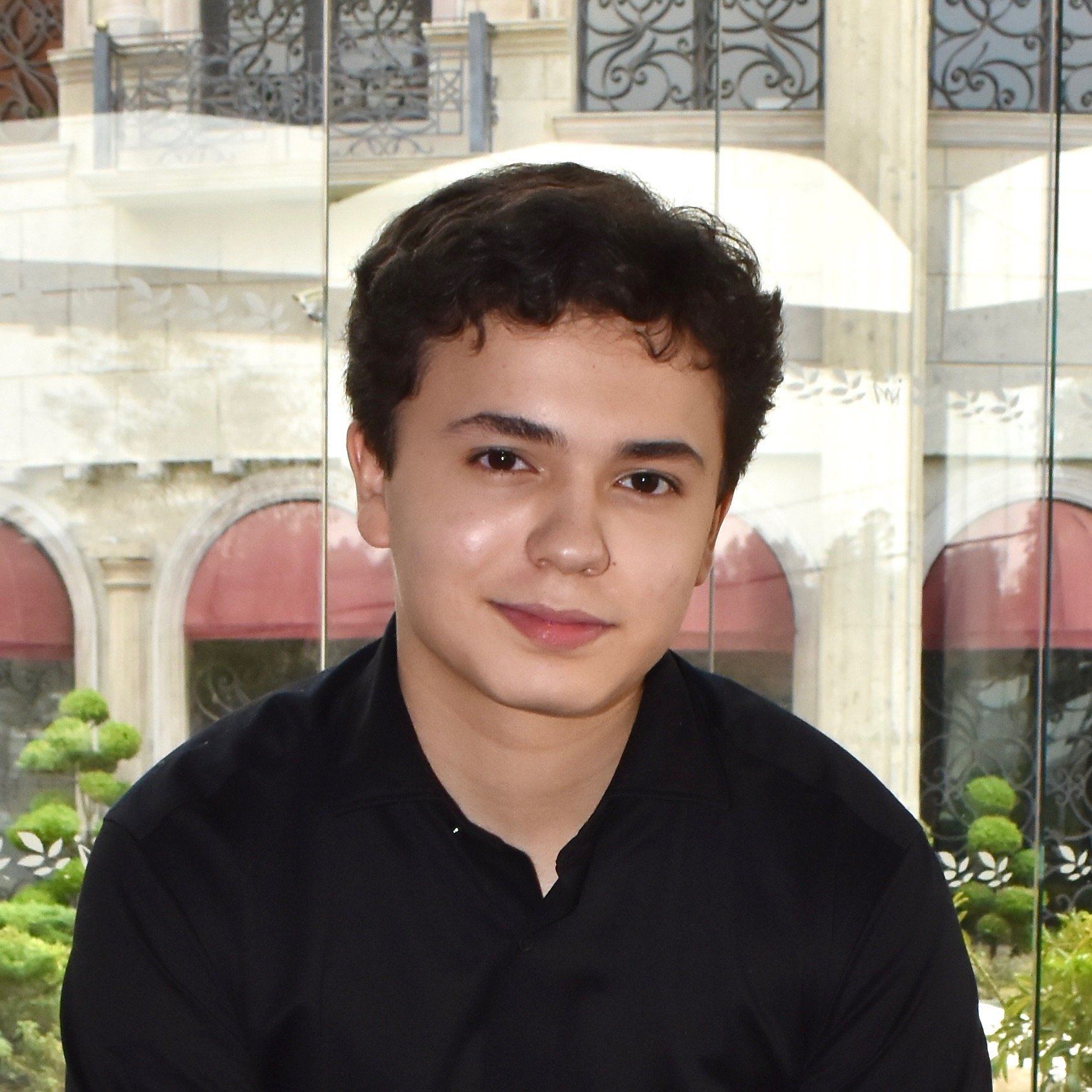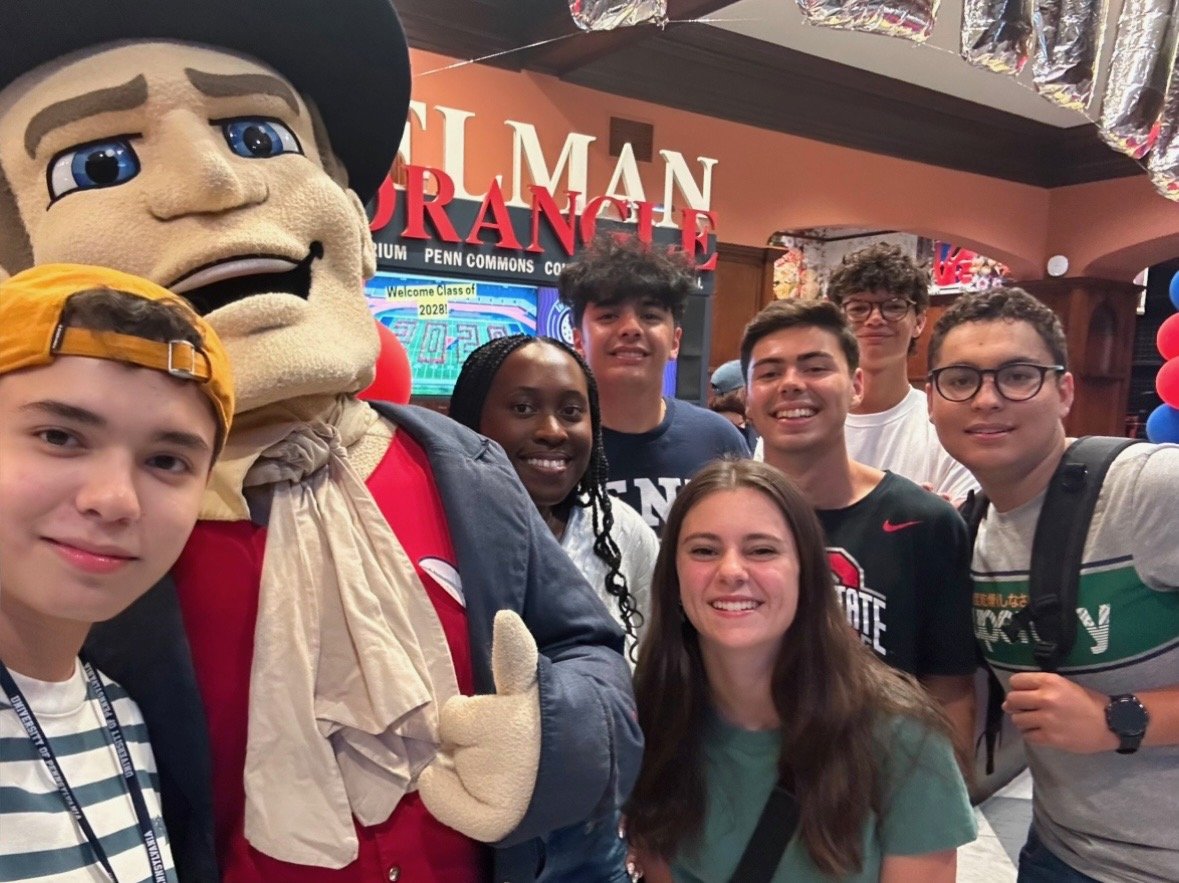Penn-ultimate Pixel: An Alumni Interview of Pedro Aguilar
Pedro Aguilar-Current Penn student and OHS Alum of Class of 2024
Recently, the Pixel Journal invited Pedro Aguilar (‘24)—an OHS alumni—for an interview about his experiences at the University of Pennsylvania. Aguilar, who enrolled in tenth grade, was a full-time OHS student for 3 years.
During his time at OHS, Aguilar notes that people often believe that the online setting limits interactions. In reality, Aguilar feels that there is more freedom of discussion and thought than in-person lectures. For example, the chat and mic options provide two sources of comments, whereas in-person, we’re limited to listening to a single person.
Overall, his favorite memory is the 2023 Summer at Stanford—for Aguilar, “in-person events were always really, really cool. Always. Everyone appreciates each other and the time they have all the more.” Moreover, Aguilar—who enjoys mathematics—notes that his favorite class was real and complex analysis with Dr. Lal. He elaborates, saying, “It was very creative. It was a different kind of math class. You had to imagine and not compute. Curiously enough, precalculus was really similar.” Nevertheless, Aguilar also explains that CRA was “the class that most impacted my world on a personal level.” This is because it’s “a class with friends, and you’re all discussing super interesting topics together. The material makes it all the more significant. Having it with Dr. Hicks especially made it really special.” Aguilar vividly recalls that his last official OHS class was CRA on a Thursday; on a “random Thursday at 1pm,” it hit that he was “never going to do this again.” Thus, it was “very painful to exit AC for the last time.”
For Aguilar, the transition from OHS to UPenn was accompanied by many questions. A week before he moved in, he realized that it was the last time he got to live in his home continuously—he asks, “Where did the time go?” As such, the week before moving in was the most difficult. After Aguilar flew to Pennsylvania, he realized that the move-in period itself was not as significant to the mental transition, which made him “very skeptical” of where his life had gone. Nevertheless, he notes that “OHS is beyond good preparation. It felt very smooth. Maybe even excessively smooth. The transition for academics wasn’t a problem at all. The physical aspect though took some adjusting.”
Pedro and his friends with Quaker, the Penn mascot
Based out of Mexico City, he sometimes visits UPenn’s cultural centers to remedy his homesickness. However, Aguilar also still calls his family multiple times a day—he laughingly recalls that he had called them five times just the day before the interview. To stay in contact with his family, he has group chat on WhatsApp, where they video call throughout the day.
Throughout the college admissions process, Aguilar was able to self-reflect on his identity. Specifically, he states that it “helped consider parts of myself that I hadn’t before.” Despite the stress, it also “renovate[d]” Aguilar’s world view in a “very important way.” Beyond self-reflection, another essential aspect was self-worth: how Aguilar “inscribed worth and joy into everything I do.” Though it was a difficult journey, Aguilar concluded that “I am the only one responsible for my own meaning and satisfaction. What a college has to say or a person holds no relevance.”
Since Aguilar had already been admitted to his top choice school in Mexico, he didn’t have to choose different tiers (safety, match, and reach). He just applied to a few reach schools in the U.S., and was admitted to UPenn! For Aguilar, UPenn was the school that aligned most with his career goals—he advises to “Make sure that you know what you’re applying to. Don’t just do it for the name.” To research schools, Aguilar primarily did research through virtual campus tours, blogs, and day-in-the-lives on Youtube. This helped familiarize himself with campus culture and distinguish each school, rather than using technical information on the Internet.
With regards to this for those currently experiencing college applications, Aguilar notes that his approach may be a little unorthodox. He explains, “Just know the way in which you convey your academic achievements, and the way your counselors may assure you of the significance of your academic achievement does not translate to who you are as a person. The way the college admission process is structured, and the way college counselors claim how you fit into it are not always fair or fit. Many times you will find admissions readers who have no idea what university courses are or have no idea what your activities mean. They just look through them and to a college reader it may seem that someone who took Calculus BC at a school that only offers up until this level is equivalent in some ways to a student who may have taken linear algebra or university-level courses. Those two things are clearly not the same, but to the admissions reader it may seem the same. And you don’t have the power to convey that. So make sure you are satisfied with what you have done and make sure you have a clear idea of the things you have done, as well as why you enjoyed them.” As a result, Aguilar assures seniors to “Trust that if you’ve done things you truly care about, the results are going to be okay and things are going to be fine. They’re going to be satisfying. It might not be your ideal imagined result, but I promise it will be a very good outcome.”
Currently, Aguilar plans to major in math and another subject: either computer science, economies, or finance. Math has always been an interest to him; it is not only fulfilling, but a relevant foundation to other subjects. To these ends, he hopes to pursue his interests in actuarial finance, risk analysis, insurance, and statistics. He’s even been considering quantitative finance, which is an intersection of math and finance. At UPenn—which is surrounded by New York City and Washington DC, Aguilar has access to many pre-professional advancement opportunities, such as company scouters. He notes, “As soon as you’re a freshman, you’re thrown into a world writing a resume, white paper, and cover letter.” Now, his objectives are trying academia, publishing, and professional research.
In addition to his academic life at UPenn, Aguilar has also joined several student organizations. He’s part of the swim club, karate club, undergraduate math society, and recently, the Wharton Accounting Actuarial Group. Within this group, students talk about career life, internship opportunities, and other actuarial-related subjects. At the undergraduate math society, students discuss various math topics and organize events centered around mathematics. In general, these organizations are “good for exploring career and personal interests in a non-stressful way.” Aguilar makes his friends in many ways—whether it be clubs, or random interactions. He recalls, “Some of my closest friends come from randomly exchanging a conversation in the central path of grass. There’s no recipe for making friends, but you’re bound to find people everywhere.”
Pedro and his karate team
Pedro and his swim team
Pedro playing the piano
Aguilar’s favorite part about campus life is that necessities are readily available. He lists, “Education, things to eat, people I like hanging out with, resources, sports, tutoring—everything I need or want is in a walkable space.” Subsequently, these resources enable an initiative for “random side quests” to “find new interests, find new people,” and more. One of these resources is housing; Aguilar is lucky enough to live in a single (though he shares a bathroom with his floor). In terms of dining, there are dining halls and cafes across campus that take university dining dollars. Aguilar comments that they are, “Usually good choices. Sometimes they are not very appetizing. Most of the time because you don’t want to walk that far to a good cafe so you just end up at the dining hall eating whatever is there.” Still, there is one major drawback: there’s nothing like home cooking. While college food has “surpassed” Aguilar’s “initially low expectations,” he still misses his mother and grandmother’s homemade meals. Thankfully, Aguilar plans to visit his family for winter break!
Typically, Aguilar wakes up at 8am due to 8:30 classes—which he realizes are “not ideal.” Other times, he wakes up at noon. The majority of his classes are concentrated in the morning, so he has the afternoon for himself along with clubs. He also has time to do homework or study, occasionally getting dinner with his friends. Sometimes, his friends have late study sessions in the house common space, ranging from 10pm to 1am. Generally, Aguilar’s schedule is very “play-it-by-year,” where things come out that sometimes take more time than expected.
Pedro at his friend’s birthday party
Comparing his experiences at OHS to UPenn, Aguilar appreciates that OHS allows students to choose their classes and construct their own schedules. Although classes are naturally more difficult, they are more manageable because of OHS. There are similar aspects, too. Namely, classes are divided into lectures twice a week, then a recitation taught by a TA where students solve problems and participate. However, there are still differences in the range of classes taught: lectures, seminars, and recitations provide a great variety. One of classes, Microeconomics 100, has helped him gain a lot of knowledge in light of election results. They explore questions such as: what does trade do for a country? Why do we care about it? Why do tariffs matter? The concepts he learns in this class support his understanding of the way that the world’s politics—and money—works.
To challenge himself, Aguilar has set a goal: leaving behind his set expectations/biases, and being open to trying new things. While he doesn’t want to live with regrets, he proceeds “with caution” to keep his values “intact.” He explains, “This is a chance to have a transformative experience. You wouldn’t expect looking forward to what the openness might bring, which is the unknown.”
Pedro and his friends on Halloween
Pedro’s Friendsgiving
Reflecting upon his lessons at college, he’s learned that it’s easy to talk to people— “people are more open and less terrifying than they seem. It is easier than it seems as a high school student who is limited by the screen.” Moreover, Aguilar has learned to be independent very efficiently, serving food for himself, putting things away, and going back to whatever he has to do. At college, he must maintain a healthy eating schedule, diet, plan the most convenient times to walk to class, make his bed, get ready, etc. In contrast, at home, “you have structure set around you.”
Most importantly, Aguilar’s college life has made him think about the kind of freedom he has over his own life. Aguilar quotes Jean-Paul Sartre: “We are condemned to be free,” and this rings especially true at this point in his life. For Aguilar, it is “very satisfying that you can do literally whatever you want.” He concludes with an insightful explanation—“Freedom is what you do with what’s been done to you. And it’s true. You are in complete control of what you do with your life and nothing matters more than your own satisfaction with your existence. And it’s beautiful that we are in the period of time where we can discover that.”








